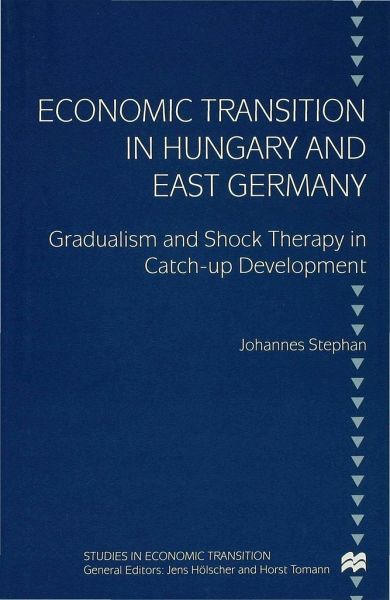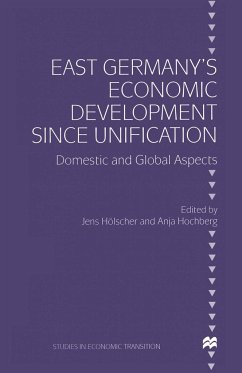
Economic Transition in Hungary and East Germany
Gradualism, Shock Therapy and Catch-Up Development

PAYBACK Punkte
38 °P sammeln!
What factors determine the success of economic transition, development and growth? Examining the contrast between East German shock-therapy and Hungary's gradualism, the book generates a set of generalisable conditions for economic development which imply some degree of state intervention and strategy. A stability-oriented incomes policy and a carefully managed integration strategy can enable sustainable export surpluses, a competitive currency and macroeconomic stability, whilst providing sufficient room for economic restructuring, structural transformation and technological catch-up. The dan...
What factors determine the success of economic transition, development and growth? Examining the contrast between East German shock-therapy and Hungary's gradualism, the book generates a set of generalisable conditions for economic development which imply some degree of state intervention and strategy. A stability-oriented incomes policy and a carefully managed integration strategy can enable sustainable export surpluses, a competitive currency and macroeconomic stability, whilst providing sufficient room for economic restructuring, structural transformation and technological catch-up. The dangers of premature integration are examined.














